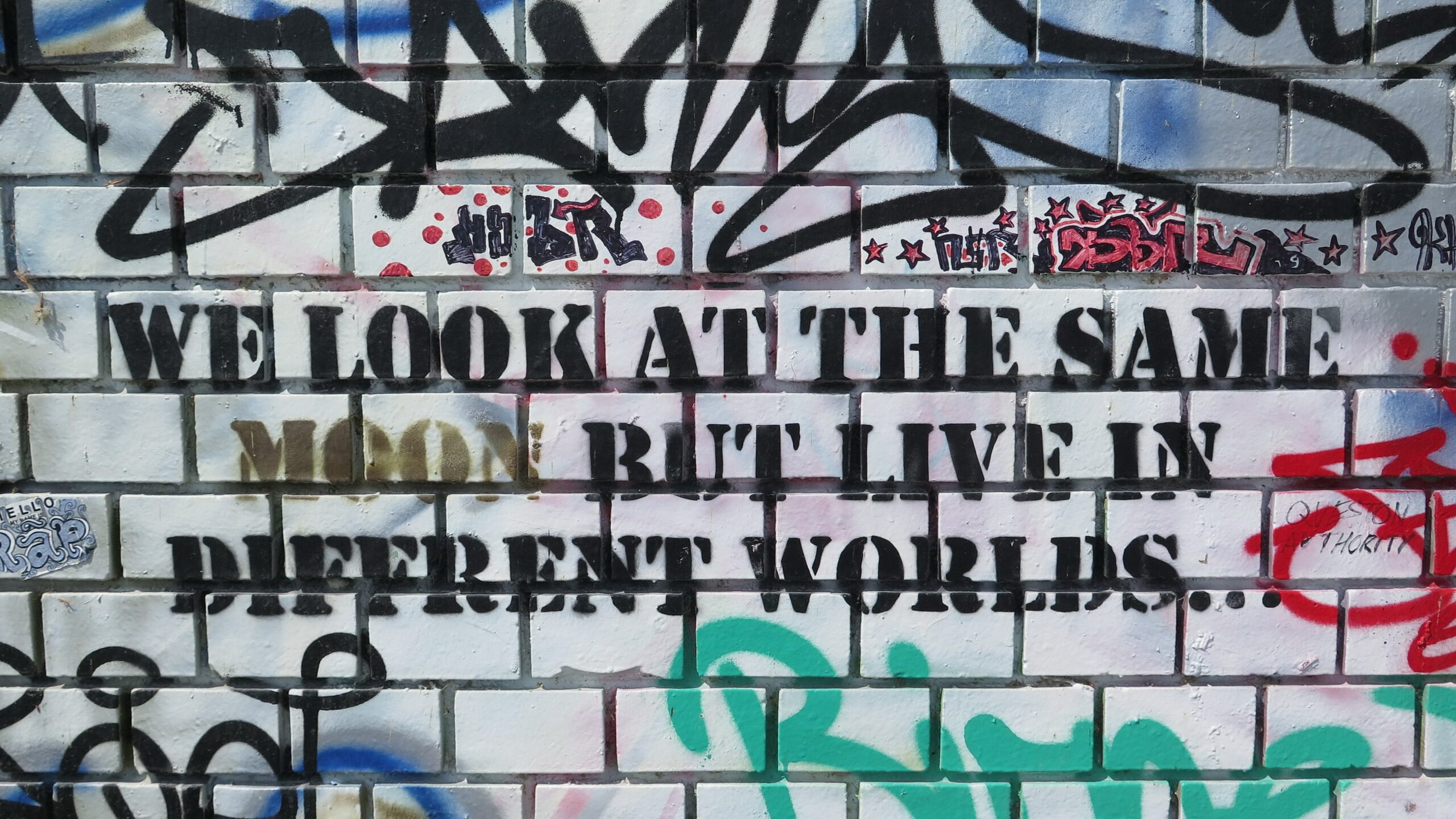All messages we send and receive are processed through a filter in our minds that has been shaped by the experiences in our lives. This filter tells us how things are but also expects that others see the world in the same way.
Such a filtration process can be helpful – it can warn us of danger, it can prompt us to be suspicious or inquisitive, it can even draw us to others as our experiences resonate and connect – but it can also lead to misunderstanding.
It is important that we recognise not only how our own internal processes are shaped by our experiences, but also appreciate that others may internalise and hear a different message shaped by their experiences.
Many times, I have sat with clients who are talking about arguments they have had with loved ones and nearly all of them have said;
“They don’t listen or they don’t understand what I am saying”.
But how can someone immediately understand, we all have completely different experiences and ways of viewing the world (our world maps)
I move to Grimsby about 12 years ago, I remember for the first year being amazed at how much greenery there was, how friendly people were (they said good morning when you passed them in the street) and I genuinely struggled (and still do as I can’t get past my Southern roots) to get my head around the concept that the evening meal is “tea” and not “dinner”!
One thing however stood out for me – local residents of the area were surprised that I would have moved here by choice. Such a conversation would illustrate perfectly this idea of ‘world maps’.
My perspective of the move was that I was moving from a small house; a commuter town close to London which was busy and overcrowded; a fast-paced lifestyle; not being able to access very much open space, without driving; to a bigger house, a beach on my doorstep, parks everywhere and a much slower pace of life. I appreciated these changes because of my previous experiences and it was very difficult for someone who had lived in one area their whole life to understand my decision to move here because they were thinking about the decision from their context and experiences – their world map – not mine.
As well as trying to manage our world maps during conversations, we also have to be aware of our own “core beliefs”.
Core beliefs are those subtle messages that have been fed to us while we were growing up that influence the way we see and respond to situations and other people. For example if we look at the message that I was given growing up of “don’t rock the boat”. This meant that growing up, one of the core beliefs that I developed was that “I must not upset anyone”. The consequence of this was that in conversations, I would often just agree with an opinion, or an activity, or a person just so they were happy.
This obviously has bigger implications when there are times, either at work or in my personal life when I know that something I say, may be of a very different opinion to those around me, and I would have the internal struggle of whether to agree or be honest. With hindsight, this made it very difficult for others to communicate with me because the message I was giving out was not genuine in the first place.
Our “core beliefs” have the power to positively and negatively affect our conversations, and the decisions we make, throughout our entire lives.
As well as world maps and core beliefs to contend with, our thinking errors can also significantly impact our conversations.
Thinking errors, result in our brains processing information in an unbalanced way.
I worked with a client who was convinced that if she were to ask someone for help (either at work or in her personal life,) they would be thinking “why can’t she do this herself, she is being lazy,” or “Why should I help you out, you have never done anything to help me.”
This type of thinking error is called mind reading. These thoughts prevented my client from asking “can you help me?” My client had already decided how the conversation was going to play out. She had mind read the other person’s response without actually asking the question. The reality may have been completely different if only she had asked the person.
World maps, core beliefs and thinking errors – it’s a wonder we manage to maintain any relationships at all, when there are so many different variables to consider when communicating?
We need to not only be aware of our context, but also the context of the person we are trying to communicate with in order to effectively get our message across.
This all sounds very doable if human beings were rational and balanced in their conversations and behaviours, but there is also the emotional factor to consider.
How do we maintain an effective conversation while managing not only our emotions but also being aware of the other person’s emotional processing?



